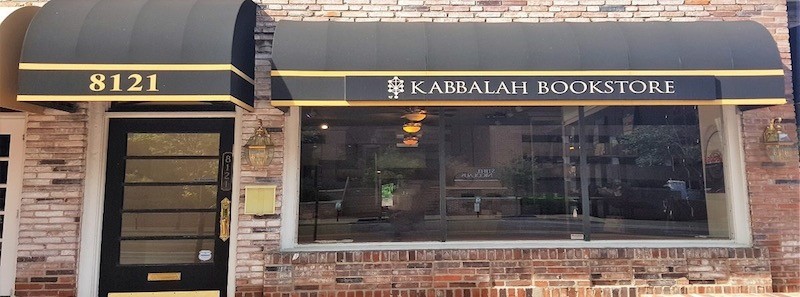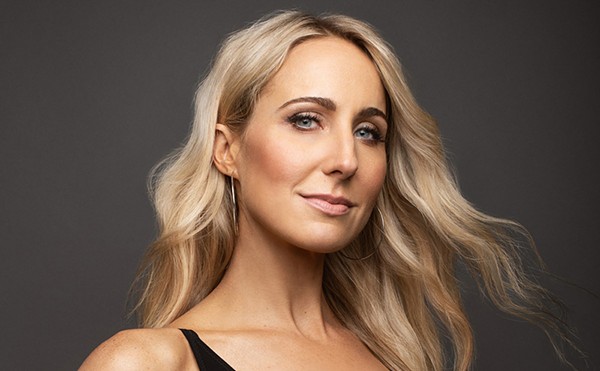Kabbalah Centre in Clayton Reopens Next Week
[
{
"name": "GPT - Leaderboard - Inline - Content",
"component": "41932919",
"insertPoint": "5th",
"startingPoint": "3",
"requiredCountToDisplay": "3",
"maxInsertions": 100
}
]
If you love mysticism and Madonna, the Kabbalah Centre just might be the philosophical home you’ve been looking for — and you won’t even have to travel to Los Angeles to access it.
Clayton’s branch of the Kabbalah Centre (8121 Maryland Avenue, Clayton; 314-643-7272) will reopen its doors to spiritual seekers on September 29, with a grand reopening event that offers a beginner’s guide to the popular mystical tradition.
The building has been closed for several weeks for renovations, which will separate the space into a bookstore and a classroom. At the re-opening, the Centre will offer brief seminars on topics from relationships to astrology, plus a 40 percent discount in the bookstore.
The Kabbalah Centre is a LA-based organization that seeks to make studying the ancient Jewish tradition something more universal. Through study, it holds, practitioners can learn to access a higher consciousness that empowers them to improve every area of their lives.
It’s most well-known, though, for attracting celebrities — this is the kabbalah practiced by Madonna, Demi Moore and Ashton Kutcher.
The Kabbalah Centre has spread to locations across the United States and the world. The St. Louis location, first opened in 2011, is the only one in Missouri.
Dr. Rachel Glik, a Clayton counselor, has studied kabbalah for 13 years and volunteers with the St. Louis center. Glik says kabbalah has helped her overcome insecurities, made her marriage and relationships stronger and empowered her professionally.
“The focus is on how it’s a way of expanding consciousness — how day-to-day consciousness is limited,” she says. “The more we study, we can see the bigger picture.”
Glik says that you don’t have to have any particular religious beliefs to become a student of kabbalah — you don’t even have to belief in God. To her, kabbalah is about a spiritual law of “cause and effect,” an understanding that you get out of the universe what you put into it.
“It’s really encouraged to try the teaching and not to believe on blind faith,” Glik says.
That’s exactly the kind of teaching, though, that has made the Kabbalah Centre controversial among Jewish leaders, many of whom prefer the traditional version of kabbalah that is taught only to devoted Jews who are at least 40 and already experts on religious texts.
The Kabbalah Centre’s controversy doesn’t end there. In 2013, the LA Times reported that the center aggressively sought large donations and may have misused up to $1 million in contributions. In the past, the organization has suggested that donating to them and buying their products can cure cancer.
Glik says that doesn’t reflect her experience with the organization. She says the Centre doesn’t pressure people to donate, and offers generous scholarship programs that allow kabbalah students to take classes for free.
More recently, a jury ordered former Kabbalah Centre co-director Rabbi Yehuda Berg to pay $177,500 to a woman who alleged that he sexually assaulted her. The plaintiff, Jena Scaccetti, said he gave her alcohol and Vicodin, and that she was “controlled” by the organization’s leaders.
Berg is the son of founders Philip and Karen Berg, and his mother and brother continue to run the organization. Though Glik says he no longer has any influence, his many books are still sold on the Centre’s website.
Still, Glik is clearly one of many people who have found the Centre’s teachings useful after years of spiritual searching.
“It changed who I am, and my own understanding of who I am,” she says.






